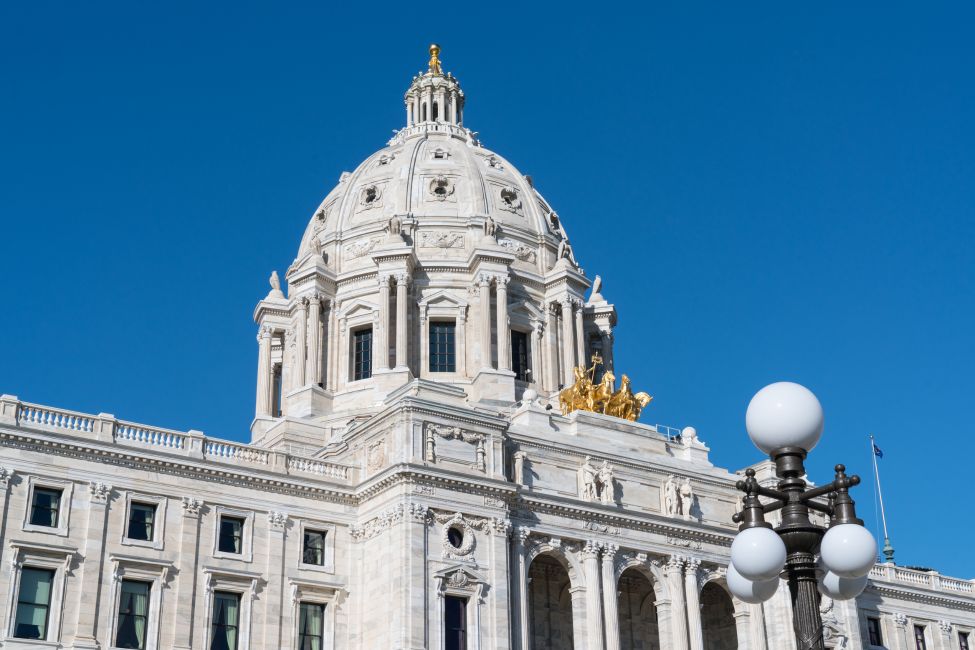
- Details
- By Native News Online Staff
While Indigenous People’s Day has been celebrated in Minnesota via proclamation for many years, state lawmakers passed HF 211 in February, following years of advocacy by the Minnesota House Native American Legislative Caucus and members of the eleven tribal nations in Minnesota.
“We need to celebrate Native peoples’ identity, our culture, our strength,” Red Lake Tribal Secretary Samuel Strong said at a public hearing in February. “We need to celebrate who we are and teach those around us how to honor us, to understand our history, and most importantly, how we can move forward past these traumas and how we can start to heal these communities that would be harmed so much.”
The move is the latest in the state’s efforts to require the education of non-natives on Native American issues, both historical and contemporary.
October 2023 marks the 10-year anniversary of the Tribal-State Relations Training program in Minnesota. The program educates Minnesota state employees about American Indian tribal governments, histories, cultures and traditions. In 2019, the state held the first “Sovereignty Day,” during which eleven representatives from Minnesota’s 11 federally recognized Tribes spoke in front of state legislators for the first time ever.
“As we serve, it’s not lost on us that Minnesota sits on 100% ceded treaty territories, which means it’s our obligation to the next generations to tell the whole truth about the generations before us,” said members of the Native American Legislative Caucus (NALC). “Indigenous People are a strong, resilient, and very active part of Minnesota’s history, its present, and its future. Honoring our traditions, culture, and community is our path to healing and reconciliation.”
This year, Indigenous Peoples’ Day will be observed on Monday, October 9, and on the second Monday of October in future years. In addition to devoting at least one hour of the program to the day’s significance, school districts may provide professional development to teachers and staff or instruction to students on the following topics:
- The history of treaties between the United States and Indigenous peoples
- The history of federal boarding schools for Indigenous children
- Indigenous languages
- Indigenous traditional medicines and cultural or spiritual practices
- The sovereignty of Tribal nations
- The contributions of Indigenous people to American culture, literature, and society
- Current issues affecting Indigenous communities.
More Stories Like This
Native News Weekly (August 25, 2024): D.C. BriefsUS Presidents in Their Own Words Concerning American Indians
Indigenous Actor Elaine Miles Reports Detention by Alleged ICE Agents
Happy Thanksgiving from Native News Online
Coming Up on Native Bidaské: Behind the Animation: Joey Clift Talks “Pow” and Native Storytelling
Help us tell the stories that could save Native languages and food traditions
At a critical moment for Indian Country, Native News Online is embarking on our most ambitious reporting project yet: "Cultivating Culture," a three-year investigation into two forces shaping Native community survival—food sovereignty and language revitalization.
The devastating impact of COVID-19 accelerated the loss of Native elders and with them, irreplaceable cultural knowledge. Yet across tribal communities, innovative leaders are fighting back, reclaiming traditional food systems and breathing new life into Native languages. These aren't just cultural preservation efforts—they're powerful pathways to community health, healing, and resilience.
Our dedicated reporting team will spend three years documenting these stories through on-the-ground reporting in 18 tribal communities, producing over 200 in-depth stories, 18 podcast episodes, and multimedia content that amplifies Indigenous voices. We'll show policymakers, funders, and allies how cultural restoration directly impacts physical and mental wellness while celebrating successful models of sovereignty and self-determination.
This isn't corporate media parachuting into Indian Country for a quick story. This is sustained, relationship-based journalism by Native reporters who understand these communities. It's "Warrior Journalism"—fearless reporting that serves the 5.5 million readers who depend on us for news that mainstream media often ignores.
We need your help right now. While we've secured partial funding, we're still $450,000 short of our three-year budget. Our immediate goal is $25,000 this month to keep this critical work moving forward—funding reporter salaries, travel to remote communities, photography, and the deep reporting these stories deserve.
Every dollar directly supports Indigenous journalists telling Indigenous stories. Whether it's $5 or $50, your contribution ensures these vital narratives of resilience, innovation, and hope don't disappear into silence.
 The stakes couldn't be higher. Native languages are being lost at an alarming rate. Food insecurity plagues many tribal communities. But solutions are emerging, and these stories need to be told.
The stakes couldn't be higher. Native languages are being lost at an alarming rate. Food insecurity plagues many tribal communities. But solutions are emerging, and these stories need to be told.
Support independent Native journalism. Fund the stories that matter.
Levi Rickert (Potawatomi), Editor & Publisher

